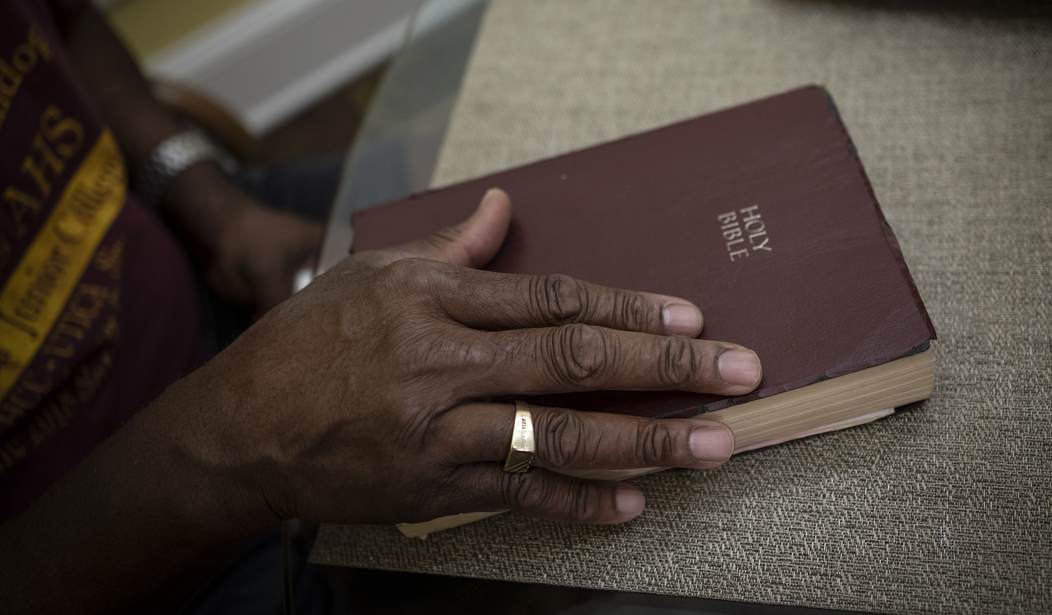Thanksgiving is upon us.
Typically, we tend to view this holiday as an occasion to take stock of our blessings, i.e. of those things in our lives, like our families, friends, jobs, homes, etc. that are good, but which we otherwise tend to take for granted.
Seldom, though, do we express gratitude for the things that, in themselves, are not so good, those experiences, the hardships, that we’d like to avoid but which are impossible to escape in life on this side of Heaven.
However, we should indeed be grateful for the trials and tribulations that befall us, for they engender pain, and this pain, particularly when it is sufficiently intense, is undoubtedly the most powerful engine of self-transformation.
According to Christianity, God became a man—the Man—in Jesus in order to share the joys and the burdens of our nature. The ultimate point of the Incarnation is Christ’s Resurrection from the dead, a demonstration to the world that death cannot defeat Life. Easter Sunday, though, was preceded by Good Friday: Before Christ could rise from the tomb, He had to suffer and die on the Cross.
Each hardship is a change that we must endure. With every change, something is irretrievably lost. It is for this reason that the philosopher Michael Oakeshott, while conceding the inevitability, and even, in many instances, the desirability of change, remarks that change “can be welcomed indiscriminately only by those…who are strangers to love and affection.” The reason for this, he notes, is that change is “an emblem of extinction,” an unmistakable “threat to identity [.]”
Recommended
Every change is akin to death.
Oakeshott’s characterization of change is especially resonant when it comes to those changes in our lives that entail separation from someone or something for which we had affection or love and in terms of which, to a significant extent, we began to define our lives.
All of the emotions that people undergo upon burying those who they’ve survived are also experienced by those whose relationships have ended due to non-fatal causes. The pain over, say, a break up, can be every bit as excruciating as the pain over the death of a loved one. What we choose to do with this pain, though, can make all of the difference as to how we proceed. No: what we choose to with the pain promises to determine who we become.
And we do indeed have a choice.
Viktor Frankl was a German-Jewish psychiatrist who lost virtually everything, his family, his work, during the Holocaust. He would eventually migrate to America where he would rebuild his life by practicing what he would preach to untold numbers of clients and others over the next so many decades: Frankl would spend the remainder of his existence rendering his suffering not only manageable, but life-affirming, by finding meaning in it. He authored a book, Man’s Search for Meaning, a little book in which, after recounting the horrors of the concentration camps to which he was confined, he elaborates on the distinctive therapeutic approach—"Logotherapy”—that he devised in response to his circumstances.
One English translation of “Logos” is “meaning.” Frankl believed that many mental health challenges are a function of a sense of meaninglessness. They represent an “existential vacuum.” So, if people could learn to discern meaning and value in their sufferings, they could liberate themselves from their angst.
Frankl famously stated:
“Between the stimulus and response, there is a space. And in that space lies our freedom and power to choose our responses. In our responses lies our growth and our freedom.”
We can choose to use our pain to become people whose lives are mired in bitterness, resentment, defensiveness, anger, and depression, or people who recognize in the losses they’ve suffered a plethora of opportunities for growth, hope, renewal, and…resurrection.
Indeed, inasmuch as change emblematizes death, then it’s accurate to say that there is indeed a sense in which the Self that preceded the change that deprived it of something that it valued is no more. The painful experience had reconfigured it. In other words, that Self had to die before a new Self could rise and flourish.
Obviously, none of this is meant to trivialize the hardships of life, or to suggest that we can just talk away the pain. The pain is real and, in some form or other, while its intensity will likely subside, it may never completely disappear. Still, the aim here is to encourage us to reframe each trial as a subplot in the epic adventure drama, the odyssey, that is the enactment of our lives.
So, this Thanksgiving, let’s give thanks to God for all of our blessings—both those that make our lives easier as well as those that have made it harder.
The truth is, both are indispensable to a good life.

























Join the conversation as a VIP Member